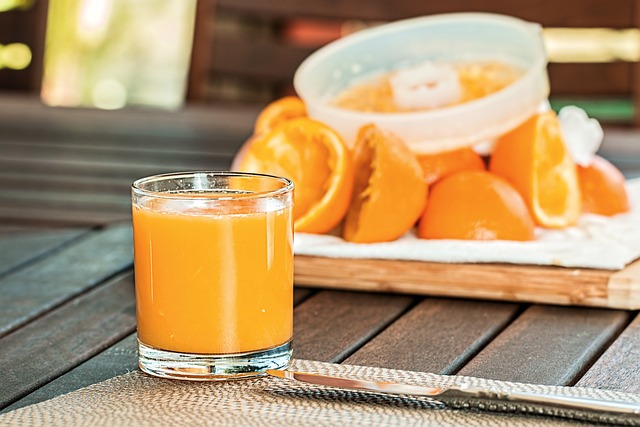From Farm to Fermentation: Exploring the Science behind Probiotic Foods
Probiotics have gained significant popularity in recent years as more and more people look for ways to improve their gut health and overall well-being. These live bacteria and yeasts, often found in fermented foods, can provide numerous health benefits when consumed regularly. In this blog post, we will take a closer look at the science behind probiotic foods, from the farm to fermentation.
The Farming Connection
Probiotics begin their journey on the farm, where various crops and animal products are grown or raised. Organic farming practices can play a crucial role in producing high-quality ingredients for probiotic foods. By avoiding the use of antibiotics and pesticides, organic farming allows the natural microorganisms in the soil and plants to thrive, increasing the potential for beneficial bacteria to be present in the final product.
Additionally, the gut health of animals raised on organic farms can be superior to those raised conventionally. This can result in higher-quality raw materials for probiotic foods derived from animals, such as milk for yogurts or cheese. Therefore, paying attention to the farming methods used can indirectly impact the probiotic content of the foods we consume.
The Fermentation Process
The real magic happens during the fermentation process. This ancient technique has been used for centuries to preserve food and enhance its nutritional value. Fermentation involves the breakdown of carbohydrates and sugars by live microorganisms, such as bacteria or yeast, resulting in the production of beneficial compounds like lactic acid, acetic acid, or alcohol.
In the case of probiotic foods, specific strains of bacteria are deliberately introduced into the food matrix, allowing them to multiply and produce a range of beneficial substances. Common examples of fermented foods rich in probiotics include yogurt, sauerkraut, kimchi, kefir, and kombucha.
The Role of Probiotics in Gut Health
Probiotics are mainly known for their positive effects on gut health. The human digestive system is home to trillions of microorganisms, collectively known as the gut microbiota. These microorganisms play a crucial role in maintaining overall health and well-being.
When consumed in adequate amounts, probiotics can help restore and maintain a healthy balance of beneficial bacteria in the gut. They can improve the digestion and absorption of nutrients, strengthen the intestinal barrier, and regulate the immune system. Studies have also suggested that probiotics may alleviate symptoms of certain digestive disorders, such as irritable bowel syndrome (IBS) and inflammatory bowel disease (IBD).
Other Potential Health Benefits
Beyond gut health, probiotics have shown promising effects in various other areas of health. For example, they may help support a healthy immune system, reduce the risk of certain allergies, and even contribute to mental well-being.
Emerging research suggests that the gut microbiota can communicate with the brain through the gut-brain axis, influencing mood, behavior, and cognitive function. Probiotics may play a role in this intricate connection, and their consumption has been associated with reduced symptoms of anxiety and depression.
Choosing the Right Probiotic Foods
With an increasing number of probiotic products available in the market, choosing the right ones can be overwhelming. To ensure you’re getting the most out of your probiotic foods, here are a few factors to consider:
- Look for products that contain specific strains of bacteria with proven health benefits.
- Check the label to ensure the product includes an adequate number of live and active cultures.
- Consider the storage and handling requirements of the product to maintain the viability of the probiotics.
- For those with specific health conditions, consulting with a healthcare professional can help determine the most suitable probiotic strains and products.
Conclusion
Probiotic foods offer a natural and tasty way to enhance your gut health and overall well-being. From the farming practices that produce high-quality ingredients to the fermentation process that develops beneficial bacteria, every step of the journey contributes to the final product’s probiotic content.
Remember to choose your probiotic foods wisely, considering the strains used, the number of live cultures, and the recommended storage practices. By incorporating probiotic-rich foods into your diet, you can take a proactive approach towards improving your gut health







